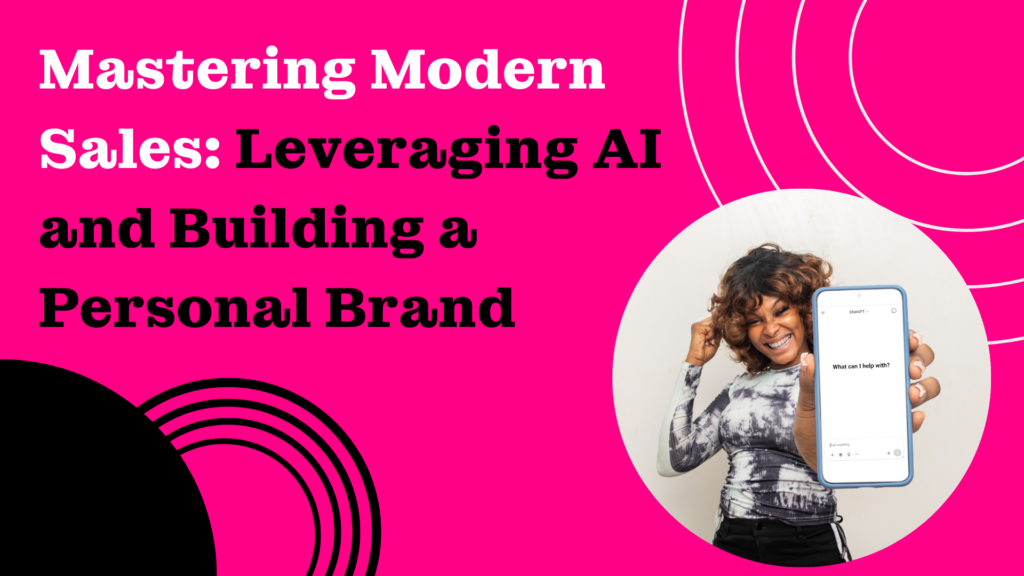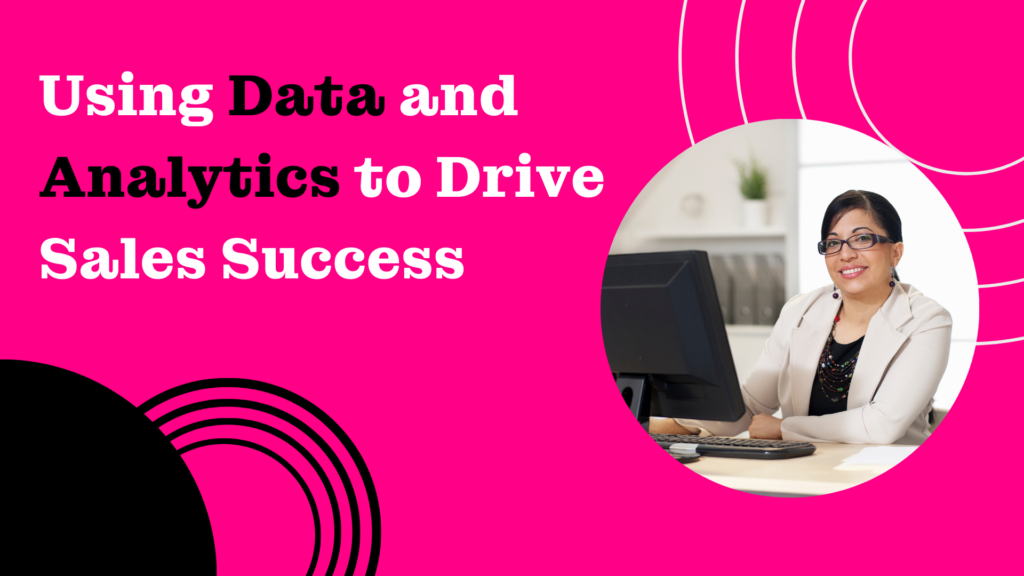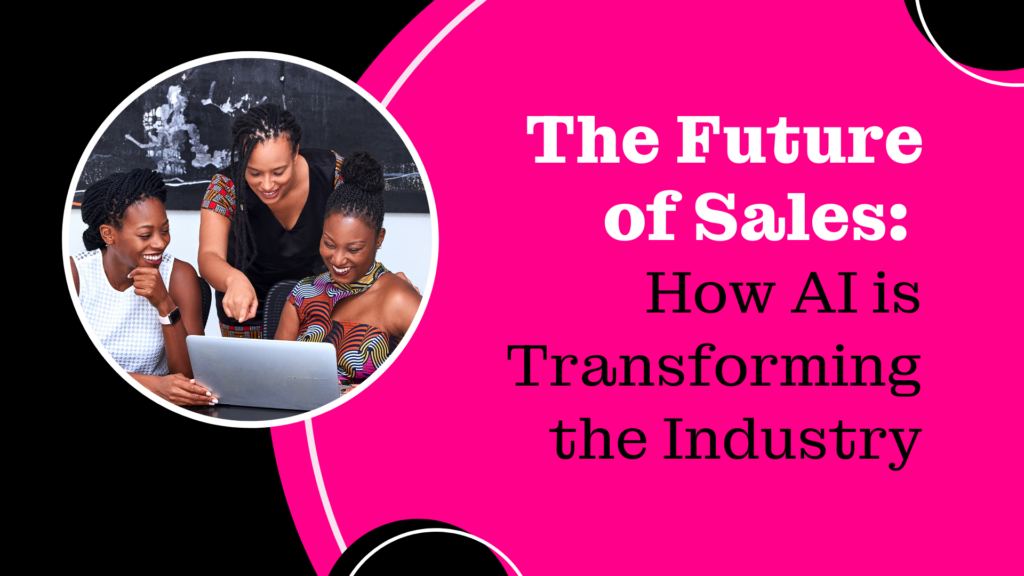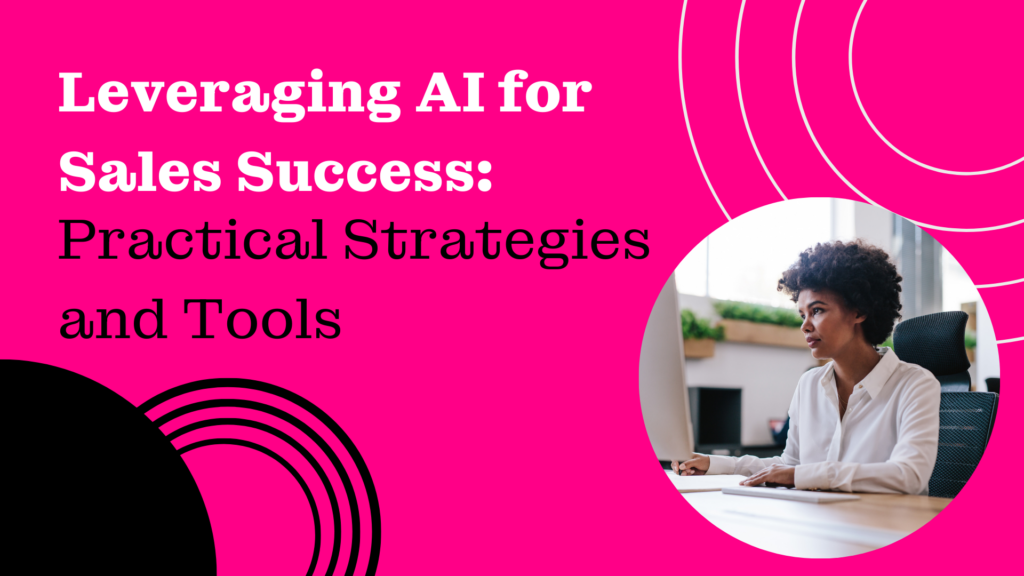From Top Seller to CEO: Lessons from Successful Entrepreneurs

Sales is more than a profession. It is a launchpad for leadership. For women of color navigating both the challenges of underrepresentation and the high demands of performance, sales builds resilience, sharpens strategy, and develops the kind of confidence required to lead at the top. Many of today’s most impactful entrepreneurs and CEOs, especially women of color, began their careers in sales. The same grit, empathy, and hustle that drive quota-crushers also power visionaries, founders, and executives who chart their own path to the top. Sales Is the Ultimate Leadership Training Sales builds the foundation for what it takes to lead. It teaches you to build trust, adapt quickly, and deliver results under pressure. These aren’t soft skills. They are the cornerstones of executive success. Here are some success stories from sistas who moved from sales to C-suite: Melissa Butler started her career on Wall Street before launching The Lip Bar, a vegan beauty brand born out of frustration with traditional beauty standards. Her time in finance taught her to pitch with conviction and reject no as a final answer. She used those same skills to grow her business from kitchen experiments to national retail shelves. Morgan DeBaun, founder and CEO of Blavity Inc., credits her early sales and media experience with shaping the way she built a platform that speaks directly to Black millennial audiences. The negotiation skills, market positioning, and audience-first thinking she developed in sales became the bedrock of her company’s growth. Janice Bryant Howroyd, founder and CEO of ActOne Group, started her path not in retail or tech, but building relationships one pitch at a time. She grew a minority-woman-owned staffing agency into a billion-dollar enterprise. Her early sales days taught her the importance of listening, problem-solving, and authentic connection, skills she credits for long-term, large-scale success. Lisa Price, founder of Carol’s Daughter, began selling handmade beauty products at local flea markets and out of her Brooklyn kitchen. Her ability to tell a compelling story, understand customer needs, and build community helped turn her side hustle into a multimillion-dollar brand. Her journey from grassroots selling to retail shelves nationwide shows the transformational power of sales done with heart and vision. These leaders prove that sales is not just a step on the path. It is a powerful foundation for creating something bigger, bolder, and deeply transformational. Mindset Shifts That Fuel the Move to Leadership Making the transition from high-performing sales professional to founder or executive requires more than tactical skill. It calls for a shift in mindset, especially for women of color often taught to prove value before owning it: From performer to visionary. You are no longer just hitting goals, you are setting them for others. From transactions to transformation. Leadership means thinking beyond numbers to impact, culture, and legacy. From proving your worth to owning your power. You do not need permission to lead, you need clarity, courage, and consistency. Owning your power also means mastering how you advocate for yourself. That includes presence, negotiation, visibility, and strategic self-advocacy. From Pitching to Founding: Lessons from the Journey If you are considering the journey from sales to CEO, remember that every stage, every deal closed, every challenge overcome, is a milestone preparing you for what comes next. Lean into what you’ve mastered. Every pitch, follow-up, and negotiation has prepared you to lead. Start before you feel ready. Action creates clarity. Build a circle that stretches you. Find mentors, advisors, and peers who champion your growth. Your reputation is shaped by how you show up every day, in conversations, in client interactions, in how you lead. Building visibility with intention can turn daily actions into long-term influence, especially when supported by a clear, personal brand. That’s why cultivating a strong presence and voice in sales is such a powerful step toward leadership. You Are Already Building the Blueprint Your experience in sales is not a stepping stone. It is a springboard. The mindset, skills, and results you’ve created prove that you are capable of much more than the next closed deal. Leadership is not waiting for you at the end of a perfect plan. It is built through every courageous conversation, every bold ask, and every moment you bet on yourself. Let’s Build What’s Next Together At Sistas in Sales, we support the sales-to-leadership pipeline. Whether you’re moving into management, launching a business, or becoming the face of your own brand, we offer the resources, network, and sisterhood to help you rise. Join the Sistas in Sales community to access mentorship, leadership development, and real conversations about what it takes to grow with purpose. And don’t miss the Sistas in Sales Summit 2025, the premier space where women of color in sales come together to expand their impact, celebrate their wins, and shape their futures on their own terms. Your story doesn’t end at top seller. It begins again, with you in the lead.
Sustainable Success: How to Build a Sales Career That Evolves With You

Sales is often framed as a sprint. Hit the numbers. Push through the pressure. Grind hard, rest later. But here’s the truth: That model burns people out, especially women of color who are navigating both professional and cultural pressures in high-performance environments. Your sales career deserves more than a burnout cycle. It deserves strategy, sustainability, and space to evolve as you do. This is not just a job. This is a career. And a sustainable career means doing work that energizes you, builds your skills over time, and aligns with the life you’re creating—not just the goals you’re chasing. Be Productive, Not Overextended Productivity isn’t about packing your calendar or always being available. It’s about staying focused on what actually moves the needle and letting go of the noise. You don’t need to earn your value through exhaustion. The constant hustle, the back-to-back calls, the late-night follow-ups? Those are signs of misalignment, not ambition. You are allowed to pause, recalibrate, and redefine what a productive day looks like for you. Start here: Time-block your most focused hours for strategic work, not just calls or meetings Schedule your priorities, not just your tasks Let AI or automation help you streamline follow-ups and reporting Protect time for thinking, planning, and rest—because clarity requires space Productivity should support your well-being, not compete with it. When you manage your energy with intention, you do more of what matters and less of what drains you. Think Long-Term: Redefining Sales Success You didn’t come this far to burn out halfway through. Sales is intense, but it can also be a long, rewarding journey if you build it on your terms. Sustainable success means designing a career that grows with you, not one that demands you shrink to fit it. That might mean stepping into leadership, shifting into a new industry, taking a sabbatical, or pivoting into a role that aligns better with your values. Sustainability looks like: Taking real time off and honoring it without guilt Having honest conversations about your bandwidth Seeking sponsors who advocate for your growth and protect your potential Allowing your goals to evolve as your life evolves Your ambition does not expire when your priorities shift. It sharpens. It becomes more intentional. You are allowed to change your mind. You are allowed to grow. You are allowed to define success in ways that reflect who you are now—not just who you were when you started. Your Career Should Honor Your Life, Not Override It Sales should not come at the cost of your peace, your health, or your identity. The job is important, but so is your joy. So is your family. So is your rest. A career worth having is one that creates room for your wholeness—not just your performance. You are not here to prove yourself endlessly. You are here to build something that lasts. That might mean logging off when you said you would. Saying no to work that doesn’t align with your values. Making time for the things that recharge you. Or redefining your goals to reflect what success actually feels like, not just what it looks like from the outside. This is not a sprint. It’s a rhythm. One that adjusts to you, not the other way around. Ready to Grow With Us? You’re building a career that reflects your vision, not just your role. And that takes community, clarity, and care. At Sistas in Sales, we believe you should not have to choose between performance and peace. We offer the space, resources, and sisterhood to help you grow your sales career in a way that is strategic, sustainable, and aligned with who you are. Join us at the Sistas in Sales Summit 2025. This is where goals meet grounding. Where growth feels personal and collective. Where women of color in sales come together to connect, learn, and lead with power and purpose. Build a career that honors all of you. We’ll meet you there.
Thriving in Sales Without Burning Out: A Guide for Women of Color to Protect Their Peace and Perform With Purpose

Success in sales often comes with pressure. Pressure to hit goals, outperform expectations, and show up with energy and confidence day after day. But for women of color in sales, that pressure is layered. We navigate high expectations while being underrepresented, manage the emotional weight of being “the only,” and balance caregiving, community, and career, all while staying “on.” Let’s be real. That kind of pressure can be exhausting. And in a world that celebrates hustle culture, it can be hard to admit when we’re running on fumes. But here’s the shift: You don’t have to sacrifice your well-being to succeed in sales. You can perform at a high level without burning out. You can protect your energy while growing your impact. This isn’t about finding perfect balance. It’s about building your version of a sustainable, aligned sales career. What Balance Really Looks Like (and What It Doesn’t) The traditional idea of work-life balance implies clean lines: work on one side, life on the other. But for most of us—especially women of color—life isn’t split down the middle. It overlaps. It blends. It moves in seasons. Some weeks, you’re in back-to-back demos and negotiating deals at a high pace. Other weeks, family, health, or mental recovery take center stage. Balance isn’t about rigid routines. It’s about flexibility and self-awareness. Real balance means giving yourself permission to shift, adjust, and reset when you need to. It means designing your days in a way that supports both your goals and your peace. Managing Stress in a High-Pressure Sales Role Stress is part of the job, but it shouldn’t run the show. In high-performance environments, stress can feel like a constant companion. And if you’re a woman of color, that stress is often compounded by microaggressions, bias, or pressure to prove yourself twice over. Burnout doesn’t happen all at once. It builds slowly. And the first step to avoiding it is recognizing what’s draining you. Start here: Name your stressors. Are you overcommitted? Is performance anxiety creeping in? Are you holding emotional labor that no one sees? Create boundaries that stick. Use calendar blocks for focused work. Turn off notifications after hours. Communicate your availability clearly and confidently. Build recovery into your routine. Take walks between calls. Use music or breathwork to reset. Log off early once a week when you can. Rest isn’t earned. It’s essential. Check in with yourself. Ask: How am I feeling today? What do I need more or less of? That awareness keeps you from hitting empty without realizing it. You are your most valuable asset. Protecting your energy isn’t optional. It’s leadership. Create Boundaries That Actually Work In a remote or hybrid sales environment, your home and your job can start to feel like the same space. One more Slack message. One more CRM update. One more late-night follow-up. Suddenly, there’s no clear “off” switch. Reclaim your time and space by setting boundaries that support your focus and protect your peace: Designate a workspace. Even if it’s just a corner of the table, make it clear where work begins and ends. Start and end your day with intention. Use simple rituals like writing down wins, lighting a candle, or closing your laptop mindfully to signal transition. Repurpose your old commute. Use that time for stretching, journaling, or movement instead of jumping straight into tasks. Stick to your hours. Let your team know when you’re offline. Model the boundaries you want respected. Boundaries aren’t about doing less. They’re about doing what matters more intentionally. Let Community Carry You You don’t have to figure it all out alone. In sales, especially in environments where you’re underrepresented, it’s easy to feel isolated. But thriving isn’t just about strategy. It’s about support. Being part of a community that understands your experience doesn’t just feel good. It’s a career advantage. When you can share honestly, ask questions, learn from others, and be affirmed, your confidence grows. And so does your performance. At Sistas in Sales, we believe success should be sustainable and collective. We talk about quotas, yes. But we also talk about boundaries. Burnout. Mindset. Power. Wellness. Rest. We celebrate wins, and we hold space for the tough days, too. Ready to Lead With Impact and Intention? You’re building something big, and you deserve to do it without sacrificing your peace to prove your worth. There is no perfect formula, only the practices and support systems that help you feel whole, focused, and in control. So ask yourself: What’s one shift I can make this week to protect my energy, reclaim my time, or reset my routine? Start there. And if you’re ready to build your career alongside a community that sees you fully, join us at Sistas in Sales. From wellness resources and leadership development to mentorship and sisterhood, we’re here to help you lead with clarity and succeed without burnout. Plus, don’t miss the 2025 Sistas in Sales Summit. This is the premier gathering for women of color in sales to connect, recharge, and rise. Expect bold conversations, real talk about balance and boundaries, and the kind of community that doesn’t just cheer you on but walks with you. Join the SIS community today, and we’ll see you at the Summit.
Mastering Modern Sales: Leveraging AI and Building a Personal Brand

How Women of Color in Sales Can Use Technology and Authenticity to Lead the Future Let’s be real: the way people buy has changed. We’re in a remote-first, digital-forward world where buyers do their research long before they ever speak to a rep. Attention spans are shorter. Expectations are higher. And trust? It’s harder to earn. Enter automation, AI-powered CRMs, predictive insights, and data-driven strategies. These tools aren’t just for techies—they’re for any sales professional who wants to close smarter, connect faster, and stay in tune with today’s buyers. If you’re a mid-to-senior-level saleswoman, embracing these changes isn’t optional—it’s essential. The good news? You don’t need to be an AI expert. You just need to be intentional, curious, and open to learning what can elevate your workflow. AI and personal branding are no longer “nice-to-haves”—they’re your edge. Together, they help you sell with more precision and more power. And for women of color in sales, they offer a real opportunity to lead the future by showing up smarter, louder, and more authentically than ever before. Leveraging AI in Sales Without Losing Your Voice The fear is real—“Will AI replace me?” The truth? It won’t replace you. But it will elevate the sales pros who know how to use it wisely. AI doesn’t need to take over your process to be powerful. When integrated intentionally, it becomes a behind-the-scenes partner—helping you move faster, make smarter decisions, and spend more time doing what actually drives results: building human connections. Here’s how AI can support your sales process while keeping your voice and values front and center: Predictive analytics can alert you when a lead is likely to convert—so you’re always one step ahead. No more chasing cold leads while your hot prospects go cold. Automated lead scoring and email personalization help you focus your energy where it counts. AI sorts through the noise so you can act with confidence and speed. ChatGPT and similar tools are game-changers for writing follow-ups, prepping for discovery calls, handling objections, or even brainstorming your next LinkedIn post. They give you a strong starting point—you add the heart. CRM integrations with AI can log call notes, track engagement, and keep your pipeline organized without manual input—giving you more time to strategize, not scramble. But remember: tech is the tool—you are the strategy. AI can’t replicate your lived experience, your cultural fluency, or your ability to read the room. It can’t replace the energy you bring to a deal, the trust you build in a conversation, or the gut instinct you’ve honed over years in the field. What it can do is clear the clutter—so you can lead with clarity and impact. Start Here: Beginner-Friendly Tools to Explore ChatGPT: Draft outreach emails, prep for sales calls, brainstorm messaging, and handle objection scenarios Lavender.ai : Get instant feedback on your email tone, clarity, and effectiveness HubSpot or Salesforce Einstein: Prioritize leads, forecast pipeline performance, and track buyer behavior with real-time insights Notion AI or Grammarly: Streamline internal communications, clean up proposals, and polish follow-ups These tools can help streamline your workflow—but what truly sets you apart in modern sales is how you show up. Technology may support the process, but your personal brand drives the connection. Building a Personal Brand That Sells In today’s sales landscape, your expertise isn’t the only thing buyers are paying attention to—they’re also paying attention to you. Your voice, your values, and how you show up in the world directly impact your credibility and influence. That’s why personal branding isn’t just a nice-to-have—it’s your edge. It’s how you move from being a name on a sales call to a trusted thought partner. And for women of color in sales, it’s also a way to claim space in an industry where your voice has long been underestimated or overlooked. So what does building a personal brand really mean—and how do you do it without feeling like you’re “performing” online? Define Your Voice Start with clarity: What do you want to be known for? Is it your negotiation skills? Your ability to turn cold leads into long-term clients? Your passion for helping Black women thrive in tech? Identify the intersections of your values, experience, and ambition—and let those guide your content and conversations. Action Step: Jot down 3 themes or values you want your name to be associated with. That’s the foundation of your brand. Own Your Wins Loudly and Boldly This is not the time to be humble. Share your success stories—big and small. Celebrate closed deals, promotions, hard lessons, and milestones. Give people a window into the journey behind your results. When you share your wins with honesty and pride, you don’t just build credibility—you build relatability and trust. Action Step: Start your next LinkedIn post with: “Here’s what no one tells you about closing a six-figure deal…” Show Up Where It Counts Visibility builds credibility. You don’t need to be everywhere—you just need to be intentional. Whether it’s sharing insights on LinkedIn, mentoring a rising saleswoman, or speaking at events, consistent visibility signals leadership. Action Steps: Comment thoughtfully on industry posts Share a weekly win or insight from your role Say yes to the panel, the podcast, or the coffee chat Every touchpoint shapes your brand. Make Content from Real Life Think you have nothing to say? You do. Your day-to-day experiences—overcoming objections, navigating team dynamics, pitching under pressure—are content gold. You don’t need polished scripts. You need perspective. Speak from where you are, not just where you want to be. Reminder: Your lived experience is not a side note—it’s the story. Action Step: Pick one moment from your week that made you pause—something you learned, overcame, or noticed in a client conversation. Turn that into a quick LinkedIn post or voice memo. The realness is what makes it resonate. Keep It Sustainable Don’t burn yourself out trying to brand yourself perfectly. Start small. Post once a week. Set aside 30 minutes on Fridays to reflect on what you learned and share
Cross-Functional Collaboration: Bridging Sales, Marketing, and Product Development

Cross-functional collaboration isn’t a buzzword—it’s a business imperative. In today’s competitive landscape, the companies leading their industries aren’t just selling better; they’re aligning better. Sales, marketing, and product development must operate as a unified front, not disconnected departments with competing priorities. For professional women of color in sales, understanding and driving this alignment is more than a value-add—it’s a leadership move. When these three functions work in sync, the impact is measurable: shorter sales cycles, more relevant campaigns, and solutions that meet real customer needs. But true collaboration requires more than calendar invites or shared docs—it demands a shift in how teams communicate, strategize, and center the customer. Start with Shared Goals Sales is focused on conversion and revenue, marketing on brand visibility and demand generation, and product on innovation and usability. These priorities may differ in scope, but they’re united in purpose: delivering value to the customer. That alignment only happens when teams co-create goals around the full customer journey, not just individual KPIs. Quarterly planning sessions, mutual accountability metrics, and shared definitions of success are essential in creating alignment that lasts. Speak Each Team’s Language The most effective sales professionals know how to communicate beyond the pitch. That means understanding how marketers think about funnel strategy or how product teams prioritize sprints. Translating sales data into actionable insights—like patterns in lost deals, product feedback from clients, or objections heard in demos—builds credibility and drives influence. When you can bridge that language gap, you stop being a voice from another department and start becoming a trusted strategic partner. Champion the Voice of the Customer No one has a clearer pulse on the customer than sales. You hear the concerns, the aspirations, the blockers—and you hear them in real time. That insight is a competitive advantage, and when it’s shared across teams, it can inform smarter product decisions and more compelling marketing. But it’s not just about relaying what customers say. It’s about representing perspectives that are often overlooked. Women of color in sales bring different lived experiences, informing an emotional intelligence and observations that can illuminate nuances others might miss. That perspective matters—not just in who we serve, but in how we build. Make Collaboration a Habit, Not a Handoff Collaboration isn’t a project milestone—it’s a rhythm. Building consistent, repeatable opportunities for collaboration turns alignment into a cultural standard. That could look like recurring cross-functional standups, shared dashboards for tracking customer trends, or co-led campaigns. But structure alone won’t sustain collaboration—relationships will. Invest in trust. Understand your counterparts’ pressures. Lead with partnership, not requests. Lead with Inclusion Inclusion is not an add-on to collaboration; it’s the foundation. When diverse perspectives are part of the planning, strategy, and decision-making process, the outcomes are richer, more relevant, and more sustainable. As women of color in sales, our leadership in cross-functional work is not only about driving results—it’s about reimagining what leadership looks like. By showing up with clarity, empathy, and strategic insight, we set new standards for collaboration and collective success. The future of sales isn’t siloed. It’s interconnected, intentional, and inclusive. And it will be shaped by those bold enough to lead beyond their lane. At Sistas in Sales, we’re building a community of women who are not only closing deals but driving cross-functional strategy, amplifying the voice of the customer, and showing up as powerful connectors across departments. If this sounds like you—or who you’re ready to become—membership gives you the tools, network, and access to take your impact to the next level. And there’s no better place to step into that power than the Sistas in Sales Summit this September. Join hundreds of high-performing women of color in sales, marketing, and product for three days of leadership development, industry insights, and the kind of real-talk collaboration that drives transformation. If you’re ready to lead across teams, shape the future of work, and do it all in community—you belong here. Become a SIS member. Join us at Summit. Build what’s next, together.
Using Data and Analytics to Drive Sales Success

Data has been hailed as the backbone of modern sales strategies for years. Yet, the sheer volume of data available can often feel overwhelming, leaving many sales professionals unsure of how to make it work for them. While data has the power to revolutionize sales, its real value comes when salespeople know how to use it effectively: tracking the right metrics, understanding their implications, and steering clear of vanity metrics that don’t contribute to meaningful outcomes. Let’s explore how you can transform data into a tool for sales success. Focus on the Metrics That Matter The first step in harnessing data’s power is understanding which metrics truly matter. Not all numbers are created equal, and chasing the wrong ones can lead to wasted effort. Key Metrics to Track: Metrics like revenue growth, conversion rates, pipeline velocity, and customer lifetime value directly impact your bottom line and help identify where to focus efforts. Diagnostic vs. Vanity Metrics: Diagnostic metrics, such as win/loss ratios and lead response times, reveal areas for improvement and guide your strategy. On the other hand, vanity metrics, like the total number of emails sent, might look impressive but rarely provide actionable insights. Tailor Metrics to Your Goals: What works for one team may not work for another. Align metrics with your sales goals and your customer’s journey to keep your focus sharp. Making Data Work for You Once you know which metrics to prioritize, the next step is turning that information into action. Prioritize High-Impact Data: Use CRM systems to filter and analyze data that drives results. For instance, prioritize leads with high engagement scores or repeat purchase history. Translate Insights Into Strategy: Data is only as good as the actions it informs. If your analysis shows low conversion rates at a specific stage of the funnel, focus your efforts there—whether that means refining your pitch or adjusting your follow-up cadence. Simplify Interpretation: Dashboards can help visualize key metrics, making it easier to focus on actionable insights without getting bogged down in numbers. Tools like Salesforce dashboards or Tableau simplify this process. Tools to Streamline Your Analytics The right tools can make a world of difference when managing data. CRMs like Salesforce or HubSpot are indispensable for tracking customer interactions, while analytics tools like Power BI, Tableau, and Zoho Analytics can help you interpret trends and results. Automation features in these tools can also reduce the manual labor of data entry, freeing you to focus on selling. Avoiding the Pitfalls of Too Much Data While data is invaluable, it can also be a double-edged sword if not managed correctly. Data Paralysis: Too much data can lead to inaction. Focus on 3–5 key metrics aligned with your goals to maintain clarity. Inconsistent Data: Dirty data—duplicate entries or incorrect details—can skew your analysis. Regular maintenance is crucial. Chasing Vanity Metrics: Avoid metrics that don’t drive decisions or align with your goals. Keep your focus on the ones that truly impact performance. Data-Driven Support with SIS Navigating the world of data can feel daunting, but you don’t have to do it alone. Through Sistas in Sales (SIS), you gain access to resources that simplify the process: Workshops on the metrics that matter most in sales. Insights from seasoned sales professionals who’ve mastered data usage. A supportive community eager to share tools, tips, and best practices for leveraging analytics. Empowering Your Sales Career Through Data Data can be your greatest ally in sales—if you let it. By focusing on meaningful metrics, leveraging the right tools, and turning insights into action, you can move from feeling overwhelmed to empowered. The key is to start small: pick one or two metrics to focus on, and build your confidence from there. Ready to master data-driven sales strategies? Join Sistas in Sales to gain access to exclusive resources, learn from industry leaders, and take your sales game to the next level. Together, we can turn data into your most powerful sales tool.
The Future of Sales: How AI is Transforming the Industry

Artificial Intelligence (AI) is revolutionizing industries across the globe, and sales is no exception. As advances are made, the impact of AI on sales processes, productivity, and customer engagement is becoming increasingly significant. Understanding these changes and leveraging AI effectively in sales can provide a competitive edge. This blog explores the latest updates on AI in sales and offers actionable recommendations for salespeople and sales leaders to implement right away. Understanding AI and Its Capabilities in Sales AI in sales refers to the use of machine learning, natural language processing, and predictive analytics to enhance various aspects of the sales process. From automating routine tasks to providing deep insights into customer behavior, AI is transforming how sales teams operate. Current trends include AI-driven chatbots, advanced CRM systems, and predictive analytics tools that forecast sales outcomes with unprecedented accuracy. AI-Driven Sales Processes Lead Generation and Qualification: AI automates lead generation and scoring, ensuring that sales teams focus on the most promising prospects. Tools like HubSpot and Salesforce Einstein use AI to analyze vast amounts of data and identify high-quality leads. By implementing AI-powered lead scoring tools, sales teams can prioritize high-quality leads and focus their efforts more efficiently based on how qualified their prospects are. Sales Forecasting: AI enhances the accuracy of sales forecasts by analyzing historical data and current trends. Tools such as Clari and Aviso provide detailed sales predictions, helping teams plan more effectively. Utilizing AI-driven analytics helps refine sales forecasts, allowing for better planning and resource allocation. Personalized Customer Engagement: AI personalizes customer interactions by analyzing behavior and preferences. Tools like Drift (SalesLoft) and Conversica create tailored email campaigns and sales pitches, enhancing customer engagement. Research shows that personalized emails outperform emails that lack personalization, drawing a very strong 41% click-through rate on average when an email is properly personalized. Leveraging AI to create personalized email campaigns and sales pitches can resonate more effectively with individual customers. Enhancing Sales Productivity with AI Automating Administrative Tasks: AI reduces the time spent on administrative tasks by automating data entry and task management. CRM systems like Zoho and Pipedrive use AI to streamline these processes by automatically logging communications, updating customer records, scheduling follow-ups, and providing intelligent task reminders based on previous interactions, freeing up time for more strategic activities. Adopting AI-powered CRM systems automates routine tasks, allowing sales teams to focus on high-value activities. Intelligent Sales Assistants: AI assistants provide real-time insights and support during sales calls. Tools like Gong and Chorus (ZoomInfo) use AI to analyze conversations and offer actionable advice. Integrating AI sales assistants enhances the effectiveness of sales calls by providing real-time insights and support. Improving Customer Insights and Analytics Predictive Analytics for Customer Behavior: AI predicts customer behavior and preferences by analyzing data from various sources. Tools like InsideSales and Infer provide insights that help tailor sales strategies to individual customers. Predictive analytics works by examining past customer interactions, purchasing patterns, and other relevant data to forecast future behavior. This allows sales teams to anticipate customer needs, tailor their messaging, and time their outreach more effectively. Using predictive analytics to refine sales strategies enables more precise targeting of customers based on their predicted behavior, ultimately increasing the likelihood of successful conversions. Sentiment Analysis: AI analyzes customer sentiment from communications and feedback, providing a deeper understanding of customer emotions. Implementing sentiment analysis tools helps better understand and respond to customer emotions, improving overall customer satisfaction. AI for Sales Training and Development AI customizes training content based on individual needs and performance. Platforms like Lessonly (Seismic) and MindTickle use AI to analyze each salesperson’s strengths, weaknesses, learning pace, and preferences. By doing so, these platforms can recommend specific modules, exercises, and resources tailored to address individual gaps and enhance existing skills. This personalized approach ensures that training is relevant and engaging for each learner, leading to better retention and application of knowledge. Utilizing AI-driven training platforms delivers tailored training programs that address specific skills and knowledge gaps, resulting in more effective and efficient learning outcomes. AI is undeniably transforming the sales industry, offering tools and insights that enhance efficiency and effectiveness. Salespeople and sales leaders who embrace these technologies and adapt their strategies accordingly will be better positioned to succeed in a rapidly evolving landscape. By leveraging AI for lead generation, sales forecasting, customer engagement, and training, teams can achieve greater productivity and drive better results. Stay ahead of the curve and join the SIS community to learn more about AI in sales. Register for the 7th Annual SIS Summit today to network with industry experts and gain valuable insights into how AI can revolutionize your sales strategies. Don’t miss out on this opportunity to elevate your sales leadership skills and drive your team to success.
Leveraging AI for Sales Success: Practical Strategies & Tools

AI and natural language models are experiencing exponential growth, disrupting nearly every industry worldwide. This rapid advancement in technology has immense potential to revolutionize sales departments and individual sales professionals’ daily work. AI can give saleswomen a competitive edge, streamline processes, and enhance productivity. Artificial Intelligence (AI) is revolutionizing the sales industry, offering powerful tools and strategies to enhance efficiency, personalize customer interactions, and drive better outcomes. Understanding and leveraging AI for sales can significantly impact success, making it a critical component of modern strategies. Understanding AI for Sales AI in sales involves using machine learning algorithms and data analysis to optimize various aspects of the sales process. This technology can streamline tasks, provide valuable customer insights, and predict future sales trends, ultimately driving increased efficiency and effectiveness. The benefits of AI for sales include improved lead generation, enhanced customer personalization, and accurate sales forecasting. Practical Strategies for Leveraging AI for Sales Strategy 1: AI for Lead Generation AI can identify and prioritize leads more effectively than traditional methods. By analyzing vast amounts of data, AI tools can pinpoint potential customers who are most likely to convert, saving time and resources. Popular tools for AI-driven lead generation include Microsoft Co-Pilot, Salesforce Einstein, HubSpot, Apollo.io and Marketo. These tools utilize predictive analytics to score leads, ensuring sales teams focus on the most promising opportunities. Strategy 2: AI for Sales Forecasting Accurate sales forecasting is essential for planning and strategy. AI can predict sales trends and outcomes by analyzing historical data and market conditions. Tools like Aviso, Clari, and Anaplan provide predictive insights that help sales leaders make informed decisions, allocate resources efficiently, and set realistic targets. Strategy 3: AI for Customer Insights and Personalization Personalizing customer interactions is crucial for building strong relationships and driving sales. AI can analyze customer behavior and preferences, allowing sales teams to tailor their pitches and communications. Top AI Tools for Sales Leaders CRM Systems with AI Capabilities AI-enhanced Customer Relationship Management (CRM) systems offer numerous benefits, including automated data entry, lead scoring, and personalized communication. Examples include Salesforce Einstein and Zoho CRM, which integrate AI to provide actionable insights and streamline sales processes. AI-Powered Sales Assistants AI-powered sales assistants can automate repetitive tasks, allowing sales professionals to focus on high-value activities. Tools like Clara and Conversica handle tasks such as scheduling meetings and following up with leads, improving efficiency and productivity. AI for Sales Analytics Data-driven decision-making is critical for sales success. AI tools like Gong.io and Chorus.ai analyze sales calls and interactions, providing insights into customer sentiments, objections, and preferences. These insights help sales teams refine their strategies and improve their performance. Implementing AI for Sales Success Integrating AI tools into existing sales workflows involves several steps. First, identify the areas where AI can have the most significant impact, such as lead generation or sales forecasting. Next, select the appropriate tools and ensure that the sales team receives adequate training and support. Finally, measure the impact of AI on sales performance to refine and optimize its use continually. Building a strong AI-driven sales strategy can transform the sales process, driving better outcomes and increasing efficiency. By understanding and leveraging AI for sales, professionals can stay ahead of the competition and achieve greater success. Learn much more about how to use AI at the 7th Annual SIS Summit, coming up in September. Buy your ticket while they’re still available!
